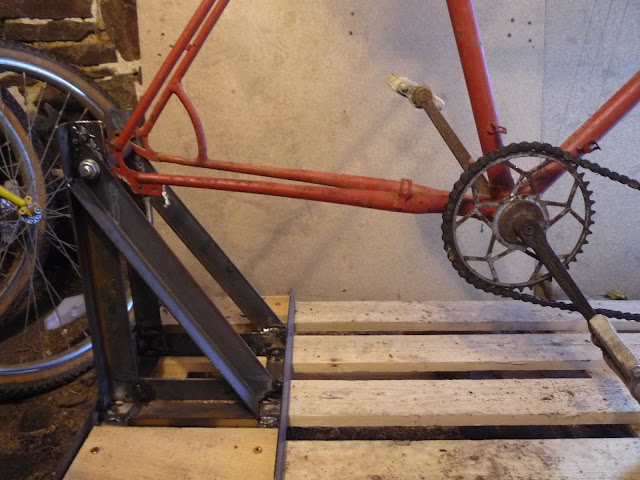Info, news & debate
Recent Posts

Decentralising power: the why, what, how and who of growing the commons economy
Why we need to replace capitalism with a commons economy; who will do it and how.

Beyond Conservation: The Farmland Commons
The Farmers Land Trust is diversifying participation in our food system and helping to create stronger communities that can not only survive the land, climate, and social injustices of the world, but can thrive while helping to heal them. Learn more about the work of The Farmers Land Trust and the Farmland Commons.

‘Climbing commons’: community-owned climbing centres
We’re following the exploits of Stroud Commons, in trying to build a commons economy for the town, and helping groups to launch in other towns. As well as a core group, there are now groups forming for various sectors of the economy, including housing, energy, land/food/water, community spaces – and now, climbing!

Hydrological Democracy
Water is the ubiquitous precondition for life on Earth. The great hydrological cycle, which passes through us, as much as through any river, cloud, or ocean, encompasses the living soil, plants and animals. The Gaian system is one, unified, watery, cycle. Water is essential to the functioning of our bodies, and to linking all living …

New commons group and public event: Llandeilo, Carmarthenshire
Llandeilo commons: invitation to join a formative group and public event in West Wales.

Low-impact Cheesemaking
Modern industrial cheesemaking uses a bunch of electricity and single-use plastic, but there are ways to go back to basics and make beautiful cheeses using homemade cultures and off-grid cheese aging setups. In this article I’ll look at several aspects of cheesemaking, and how to approach each one in a low impact way. Milk Milk …

How to Convert your Washing Machine to Pedal Power 1 – The Basic Model (Front-loader)
Convert your washing machine to pedal power!

How to bring the water industry into community ownership: Julian Jones of Water21, Part 2
part 2 of an interview (see video below for more details – well worth it!) with Julian Jones, a water engineer and distinguished fellow of the Schumacher Institute, who has worked and provided consultancy for water companies, NGOs, the Environment Agency, universities and governments.

Bridport Cohousing launches a range of natural build courses
Bridport Cohousing launches a range of natural build courses.

Resistance Festival to help save Monkton Wyld Court
A resistance festival of free workshops and music is taking place at Monkton Wyld Court, nr Lyme Regis. This is in support of the community that has run Monkton Wyld Court for the last fifteen years, and is now threatened by incoming charity trustees. Monkton Wyld Court is the site of a microdairy which dates …

Taking the water industry off the water companies: Julian Jones of Water21, Part 1
Part 1 of an interview with Julian Jones, a water engineer and distinguished fellow of the Schumacher Institute, about building a water commons for Stroud.

Homemade Lipbalm
An easy to follow recipe for homemade lipbalm that will protect your lips this autumn.

More on the money problem: it doesn’t have to be ‘scarce’
Following on from a recent post by Tom Greco, on the essential nature of money, Dil Green of Lowimpact.org and Mutual Credit Services here talks about its apparent scarcity, how that negatively affects our communities and our well-being, and how it could be different – based on mutual credit and the commons economy.

Earth Overshoot day and the importance of low impact living
Today (August 2nd) is Earth Overshoot day. Not heard of this? It means that between January 1st and August 2nd our use of Earth’s resources is equivalent to what it can regenerate in a year. Our demand on nature exceed it’s biocapacity. Sadly, since 1971 this date has crept forward as we continue to live …

How to solve the money problem in a nutshell
This article from Tom Greco contains the basics of what you need to know about money, currency, credit and exchange.

8 amazing benefits from street trees
Read about the importance of street trees and one group’s mission to make sure their role in our life is recognised.

Stroud Commons 5: forming a ‘commoners’ group for each sector of the economy
This is the latest in a series of articles documenting our group’s attempts to build the commons economy in Stroud, in a way that can be implemented in other towns, and connected together to build the foundations of a new, commons economy. It covers what we’ve done so far, and how people can get involved.

Building back differently: peasant economics and heritage craft
If a fair share of the planet is a couple of ‘useful’ global hectares per individual, the planet could sustain about 10 billion people living primitively.

Eco-friendly laundry: 12 easy tips to reduce your environmental impact
12 easy ways to make your laundry eco-friendly.

An authoritarian world government is not going to save us
A growing question for environmentalists is the extent to which the existential threat we face means that countries and populations should be forced to reduce consumption, and hence whether an authoritarian politics is the best way to face the future.
